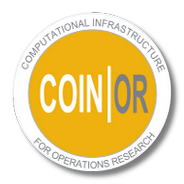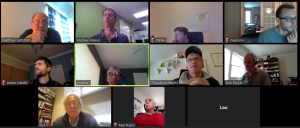2019 COIN-OR Cup Winners Announced
The 2019 COIN-OR Cup celebration took place at the INFORMS Annual Meeting in Seattle on Monday, October 21. The selection committee was co-chaired by last year’s winners, Andreas Lundell and Jan Kronqvist. The 2019 winners are Samuel S. Brito and Haroldo G. Santos of Universidade Federal de Ouro Preto, Brazil. The citation appears below.
Congratulations to the winners, and thanks for all you do for COIN-OR.
COIN-OR CUP 2019
The annual COIN-OR Cup Prize recognizes and celebrates effective uses of COIN-OR software or valuable contributions to COIN-OR.
As COIN-OR already consists of over 60 open source projects, it is important to not just recognize new projects, but significant improvements to already existing ones as well.
Mixed-Integer Linear programming (MILP) plays a central role in operations research (OR), with a wide variety of applications. The commercial solvers have impressive performances, but to researchers in OR they mainly remain closed. Furthermore, there are several applications where the licenses of the commercial solvers render them economically infeasible. There is, thus, a strong motivation for an efficient open-source MILP solver, and this year’s winner has made a strong contribution to improve the main open-source alternative.
The project captures the spirit of the COIN-OR initiative, and the importance of their work, and the solver, is also highlighted by the fact that it was used in most of the other submissions this year.
With this motivation, the COIN-OR Cup 2019 has been awarded to the submission
Using Conflict Graphs in COIN-OR Branch-and-Cut Solver
submitted by
Samuel S. Brito and Haroldo G. Santos
Universidade Federal de Ouro Preto, Brazil

